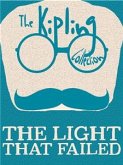"Seeking for freedom I go to that God who is the light of his own thoughts. A man who knows him truly passes over death; there is no other path to go." -- Upanishads In the Path for May, 1886, we find these words: "We need a literature, not solely for highly intellectual persons, but of a more simple character, which attempts to appeal to ordinary common-sense minds who are really fainting for such moral and mental assistance as is not reached by the more pretentious works." The experience of one student is, on the whole, the experience of all. Details differ, however. Some are made more instantly rich than others: they are those who put forth more vigorous and generous effort; or they have a Karmic store which brings aid. What Theosophists know as Karma, or the law of spiritual action and reaction, decided this, as it works on all the planes, physical, moral, mental, psychical, and spiritual alike. Our Karma may be worked out on any one of these planes when our life is chiefly concentrated upon it, no matter upon what other plane any special initiative impulse or branch of it originated. The writer, when first he became a theosophical student, had the aid of an advanced occultist in his studies. This friend sent him, among others, the letters which, in the hope that they may assist others as they have the original recipient, are here published. They are not exhaustive treatises; they are hints given by one who knew that the first need of a student is to learn how to think. The true direction is pointed out, and the student is left to clarify his own perceptions, to draw upon and enlarge his own intuitions, and to develop, as every created thing must at last develop, by his own inward exertions. Such students have passed the point where their external environment can affect their growth favorably. They may learn from it, but the time has also come to resist it and turn to the internal adjustment to higher relations only.
Bitte wählen Sie Ihr Anliegen aus.
Rechnungen
Retourenschein anfordern
Bestellstatus
Storno









